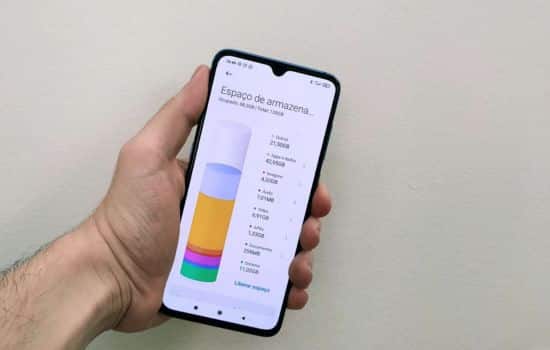The notification appears at the top of the screen, relentless and frustrating: "Storage Full." From that moment on, your smartphone, which should be a window to the world, becomes a source of stress. You can't take a photo of that special moment, you can't download the app you need for work, and even security updates are pending. If you've been through this, you know what I'm talking about. The first reaction for many is to run to the app store and search for it. apps to free up space on your cell phone.
However, this search can be a dangerous trap. The internet is full of "miracle cleaner" apps that promise to optimize your device, but in reality, they may be villains in disguise, created to display ads, collect your data, or even install malware. As a technology journalist, my commitment is to your safety. That's why I've prepared this definitive and honest guide, focusing only on safe, reliable, and truly efficient tools to help you put an end to your lack of space.
Caution: The Danger of 'Miracle Cleaning' Apps
Before we discuss solutions, we need to address the problem. Many free "cleaning and optimization" apps survive thanks to a dubious business model. Generally:
- They exaggerate the problems: They scan your phone and reveal hundreds of "issues" and "megabytes of junk" with alarming names to justify their existence.
- They Don't Clean What Matters: They delete harmless cache files that the system would recreate anyway, giving a false sense of cleanliness.
- They consume more battery: By constantly running in the background, they end up consuming more battery than they save.
- They represent a security risk: In exchange for the "free" service, many request invasive permissions and may sell your usage data to third parties.
The golden rule is: if it sounds too good to be true (like “speed up your phone by 200%”), it probably is.
The Right Tools: Secure Apps That Actually Work
The best way to free up space is by using tools from companies you already trust. And the main one is Google itself.
1. Google Files: The Smart and Official Manager
If you could only choose one app for this task, it would be Google FilesIt's lightweight, free, ad-free, and, most importantly, smart. It was created by Google to be the Swiss Army knife of file organization on Android.
What Files by Google does for you:
- Smart Suggestions: Analyze your storage and proactively suggest what to delete: "duplicate files," "memes you've received," "low-resolution photos," and "large files."
- One-Touch Cache Clear: Safely clean up temporary app junk.
- Identify Unused Apps: Displays a list of apps you haven't opened in a long time, suggesting they be uninstalled.
- Free Up Space Easily: Commands the deletion of useless files in blocks, saving you a huge amount of manual work.
⬇️ Download Files from Google:
2. Native Tools for Your Mobile: The Power You Already Have
Often, the best solution doesn't require a download. Both Android and iOS have excellent native storage managers.
- On Android (Samsung, Motorola, etc.): Go to Settings > Device maintenance > StorageThere, the system will give you a complete analysis, showing what's taking up space (apps, images, videos) and offering cleanup suggestions, such as deleting duplicate files or moving data to the SD card.
- On iPhone (iOS): Go to Settings > General > iPhone StorageiOS shows a graph of your usage and offers smart recommendations, like "Uninstall Unused Apps" (which deletes the app but keeps your data) and "Automatically Delete Old Conversations" in iMessage.
Before looking for a third-party app, always explore what your own phone already offers.
Beyond Apps: Manual Tips for Deep Cleaning
- The Villain WhatsApp: Go to WhatsApp Settings > Storage & Data > Manage Storage. You'll be surprised by how much space is taken up by videos and photos you don't even remember receiving.
- Music and Videos Offline: Services like Spotify, Netflix, and YouTube Premium allow you to download content. Check the "Downloads" sections in these apps and delete what you no longer need.
- The Cloud is Your Best Friend: Here's the golden tip. Use Google Photos, iCloud, OneDrive, or Dropbox to automatically back up your photos and videos. Once they're safe in the cloud, you can use the app's "Free up space" option to delete the originals from your device, instantly freeing up gigabytes.
- The most economical cars in the world
- The Best Apps to Measure Your Stress Level
- Games to Be the King of the Party
Conclusion: Smart Organization is Better than Miracle Cleaning
Dealing with a lack of space on your phone isn't so much about finding a "magic app," but rather about adopting smart habits and using safe tools. Instead of relying on dubious cleaners, opt for robust solutions like Google Files and the native tools of your system.
Combine the use of these apps with the practice of backing up your files to the cloud and regularly reviewing your downloads. By doing so, you'll not only recover valuable space, but also ensure the long-term security and performance of your phone.
Which of these tips has helped you the most to free up space on your phone?


